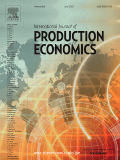 El Jueves 31 de Enero de 2014, por la tarde, en la Facultad de C.C. Económicas y Empresariales, tendrá lugar la ponencia “El Director de Marketing 2.0, estrategias de marketing digital”, a cargo de D. Rubén Olmeda Gutiérrez, dentro del Máster Universitario en Economía/Economics.
El Jueves 31 de Enero de 2014, por la tarde, en la Facultad de C.C. Económicas y Empresariales, tendrá lugar la ponencia “El Director de Marketing 2.0, estrategias de marketing digital”, a cargo de D. Rubén Olmeda Gutiérrez, dentro del Máster Universitario en Economía/Economics.MATERIA: Que los asistentes puedan comprender de una forma estructurada lo que necesitan las empresas hoy en día de un Director de Marketing. Las funciones que debe realizar y las estrategias que funcionan en las campañas online.
FECHA: 31 enero 2013 a las 5 y media de la tarde en el salón de grados
DURACIÓN: 4 Horas
BIO de D. Rubén Olmeda Gutiérrez:
Tras estudiar derecho en la UCM, realizó el Master en Dirección de Marketing y Gestión Comercial en ESIC
Ocupó las funciones de Director de Comunicación en AON.
Ejecutivo de Grandes Cuentas en la Agencia de Publicidad Peter Planning.
Ha sido Country Manager para la Agencia de Medios Mediagate en España.
Desde 2012, desarrolla proyectos online con las empresas Sullivan Marketing, Blogempresas.com y Open Space.
Es profesor en ESIC Madrid impartiendo los seminarios de “Marketing Digital” y “Social CRM”.












